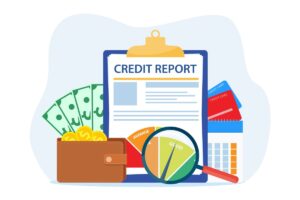Homeownership is the American dream, providing stability, security, and a sense of belonging. However, home prices have shown an upward trend, leaving many families with mortgages as their only viable financing option.
The increase in mortgage applications has led to stricter approval criteria, especially for states such as Maryland, where the real estate market is highly competitive. Below are tips to help improve your chances of getting approved for a mortgage in Maryland:
Review Your Credit Report
 Mortgage lenders rely on credit rating, usually documented in credit reports, to determine an applicant's creditworthiness. This report summarizes your financial history, including payment history, credit utilization, length of credit history, types of credit used, and new credit accounts.
Mortgage lenders rely on credit rating, usually documented in credit reports, to determine an applicant's creditworthiness. This report summarizes your financial history, including payment history, credit utilization, length of credit history, types of credit used, and new credit accounts.
Credit reports are used by various credit scoring models, such as FICO and VantageScore, to calculate your credit score. A high score increases your chance of being approved for a mortgage and guarantees lower interest rates and better loan terms.
You are entitled to a free credit report from each credit bureau (Equifax, Experian, and TransUnion) every 12 months. Be sure to review these reports regularly for discrepancies and to see areas needing improvement.
Rectify Errors in Your Credit History
If your credit report has errors, dispute them with the bureau to have them rectified, as they may adversely affect your credit score. Depending on the issue's complexity, the process can take up to 30 days or longer, and it may take even longer to reflect on your credit score. As such, review your credit report at least six months before applying for a mortgage in Maryland.
The following are common errors to be aware of:
- Incorrect personal information such as name, address, or social security number
- Accounts that do not belong to you are usually cases of identity theft
- Incorrect payment history
- Closed accounts that are reported as open or vice versa
- Duplicate accounts
- Outdated information
Improve Your Credit Score
There are other ways to boost your credit score besides correcting errors on your credit report. These include:
Reducing Your Debt-to-Income Ratio
Your debt-to-income ratio is your total recurring monthly debt payments as a percentage of your gross monthly income. A lower ratio signals the availability of disposable income, which can help make monthly mortgage payments.
The highest DTI most lenders will accept is 43%. However, mortgage lenders usually prefer a debt-to-income ratio of 36% or lower and a front-end ratio of 28% or lower. The front-end ratio measures the amount of debt directed toward servicing mortgage payments and other housing expenses.
To lower your DTI, reduce monthly debt payments by paying off existing debts and cutting back on credit purchases. Alternatively, increase your income through a raise, side hustle, extra hours, etc.
Avoid Opening New Credit Accounts
Opening new credit accounts decreases the average length of your credit history and increases the number of hard inquiries on your credit report, which lowers credit scores. Hard inquiries occur when a lender checks your credit report to make a lending decision.
As such, avoid opening new accounts close to or during the mortgage application process, as it may signal financial distress.
Keep Old Credit Accounts Open
As mentioned, the length of your credit history affects your credit score. Therefore, keeping old credit accounts open is advisable even if you are not actively using them. This shows a reliable and consistent payment history, which can boost your credit score.
Keeping Credit Card Balances Low
High credit card balances indicate high credit utilization, which occurs when you use a significant portion of your available credit limit. This can lower your credit score, as it signals financial instability. Strive to pay off all your credit card balances in full every month or keep them below 30% of your total credit limit.
Save Up for a Larger Down Payment
 Paying a substantial amount of the home's value upfront can significantly improve the chances of getting approved for a mortgage in Maryland. A larger down payment reduces the loan principal and shows financial stability, which portrays you as a low-risk borrower.
Paying a substantial amount of the home's value upfront can significantly improve the chances of getting approved for a mortgage in Maryland. A larger down payment reduces the loan principal and shows financial stability, which portrays you as a low-risk borrower.
The lower loan-to-value ratio also means better mortgage interest rates and terms. Also, an over 20% down payment means you won't have to pay private mortgage insurance (PMI), which protects the lender in case of default.
Get Fast Approval for Mortgages in Maryland at Woodsboro Bank
As a community bank, Woodsboro Bank offers personalized mortgage services with quick approvals, competitive rates, and favorable terms to help Maryland residents realize their real estate dreams. The bank offers construction, investment, HELOC, fixed-rate, and adjustable-rate mortgages. Contact Woodsboro Bank today to get a fast approval for a mortgage in Maryland.
